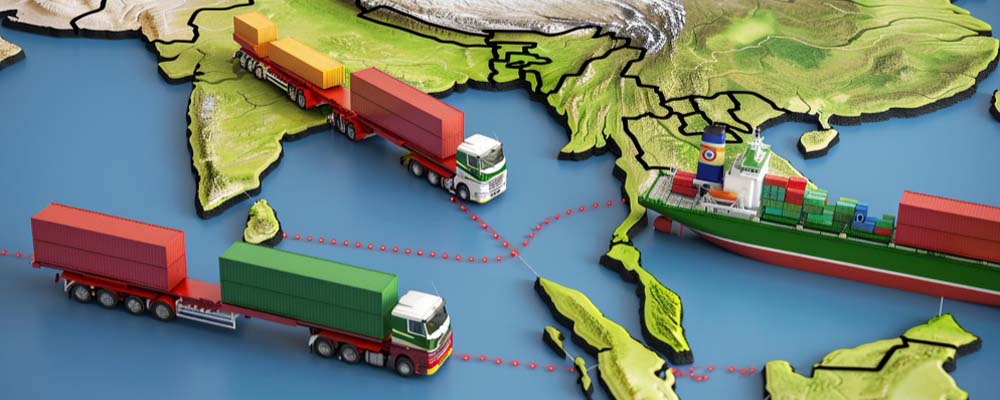
Chile, a land of stunning landscapes and rich cultural heritage, is also a powerhouse in the global export market. If you’re in the logistics or freight forwarding industry, understanding Chile’s main export can open doors to numerous opportunities. This blog post dives deep into Chile’s primary export, explaining its significance, the logistics involved, and how you can leverage this knowledge for your business.
The Backbone of Chile’s Economy
Chile’s economy relies heavily on its export sector. But what exactly is Chile’s primary export? It’s COPPER. This precious metal has not only shaped Chile’s economy but also positioned the country as a global leader in the mining industry.
Why Copper Reigns Supreme
Copper is an essential component in various industries, from electronics to construction. Its conductivity and malleability make it indispensable in modern manufacturing. For freight forwarding companies, this means a steady demand for transportation and logistics services.
The Global Demand for Copper
Countries like China, the United States, and Germany are major importers of Chilean copper. This global demand ensures a consistent flow of goods, which is a boon for logistics providers. Understanding the market dynamics can help you forecast demand and plan your logistics more effectively.
The Role of Chilean Mining Companies
Companies like Codelco and Antofagasta are giants in the copper mining industry. Partnering with these companies can offer freight forwarders a stable and lucrative business. Knowing the key players can give you a competitive edge in negotiations and service offerings.
 Logistics and Transportation Challenges
Logistics and Transportation Challenges
Transporting copper from Chile to global markets involves complex logistics. From mining sites to ports and beyond, understanding the challenges can help you optimize your operations.
Inland Transportation
Copper is often transported from mining sites in the Andes to ports on the Pacific coast. This requires efficient road and rail networks. Collaborating with local transportation providers can streamline this process and ensure timely deliveries.
Port Infrastructure
Chile’s ports, such as the Port of Valparaíso and the Port of San Antonio, are equipped to handle large volumes of copper. However, port congestion and customs procedures can pose challenges. Familiarize yourself with the local port infrastructure to avoid delays and ensure smooth operations.
International Shipping
Shipping copper to international markets requires specialized vessels and careful planning. Understanding the shipping routes and seasonal variations can help you optimize your shipping schedules and reduce costs.
Customs and Regulatory Compliance
Navigating customs and regulatory requirements is crucial for importing and exporting copper. Chile has specific regulations that must be adhered to, and understanding these can save you time and money.
Export Documentation
Proper documentation is essential for smooth customs clearance. Ensure that all necessary permits, certificates, and declarations are in order. Working with experienced customs brokers can simplify this process and reduce the risk of errors.
Tariffs and Duties
Understanding the tariffs and duties applicable to copper exports can help you price your services competitively. Stay updated with the latest trade agreements and tariff changes to avoid unexpected costs.
Compliance with Environmental Regulations
Environmental regulations are becoming increasingly stringent. Ensure that your operations comply with local and international environmental standards. This not only helps in smooth operations but also enhances your company’s reputation.
 Leveraging Technology for Efficient Operations
Leveraging Technology for Efficient Operations
Technology plays a crucial role in modern logistics. Implementing the right tools can enhance efficiency, reduce costs, and improve customer satisfaction.
GPS and Tracking Systems
Real-time tracking of shipments ensures transparency and accountability. Invest in advanced GPS and tracking systems to monitor your shipments and provide accurate updates to your clients.
Warehouse Management Systems
Efficient warehousing is critical for handling large volumes of copper. Implementing robust warehouse management systems can optimize storage, reduce handling times, and improve overall efficiency.
Blockchain for Transparent Transactions
Blockchain technology can enhance transparency and security in the supply chain. Implementing blockchain solutions can streamline documentation, reduce fraud, and build trust with your clients.
Building Strong Relationships with Local Partners
Collaborating with local partners can provide valuable insights and resources. Building strong relationships with local transportation providers, port authorities, and customs brokers can enhance your operations.
Leveraging Local Expertise
Local partners have a deep understanding of the market and regulatory landscape. Leveraging their expertise can help you navigate challenges and optimize your operations.
Long-term Collaborations
Building long-term collaborations with local partners can provide stability and reliability. Focus on establishing mutually beneficial relationships that foster trust and collaboration.
Sustainable and Ethical Practices
Sustainability and ethical practices are becoming increasingly important in the logistics industry. Implementing sustainable practices can enhance your reputation and attract environmentally-conscious clients.
Reducing Carbon Footprint
Implement measures to reduce your carbon footprint, such as optimizing routes, using fuel-efficient vehicles, and investing in renewable energy sources. Sustainability initiatives can also result in cost savings.
Ethical Sourcing and Supply Chain
Ensure that your operations are aligned with ethical sourcing and supply chain practices. Collaborate with suppliers committed to fair labor practices and compliance with environmental regulations.
Corporate Social Responsibility
Participate in corporate social responsibility efforts to contribute positively to the community. Supporting local communities and environmental causes can enhance your brand image and build goodwill.
Exploring New Market Opportunities
Understanding Chile’s primary export can open doors to new market opportunities. Diversifying your services and exploring new markets can drive growth and profitability.
Expanding Service Offerings
Consider expanding your service offerings to include value-added services such as warehousing, packaging, and last-mile delivery. Diversifying your services can attract new clients and increase revenue streams.
Exploring Emerging Markets
In addition to established markets, explore emerging markets with growing demand for copper. Identifying and tapping into emerging markets can provide new growth opportunities.
Strategic Partnerships
Form strategic partnerships with other logistics providers and industry players. Collaborative efforts can enhance your capabilities and offer comprehensive solutions to clients.
 The Future of Copper Exports
The Future of Copper Exports
The future of copper exports from Chile looks promising, with increasing demand and technological advancements driving growth. Staying ahead of industry trends can position your business for long-term success.
Technological Innovations
Advancements in mining technology and logistics solutions are shaping the future of copper exports. Stay updated with the latest innovations to remain competitive and efficient.
Market Trends
Track market trends and demand shifts to adjust your strategies effectively. A strong grasp of market dynamics enables informed decision-making and allows you to seize emerging opportunities.
Sustainable Growth
Focus on sustainable growth by balancing profitability with environmental and social responsibility. Sustainable practices can enhance your reputation and ensure long-term success.
Conclusion
Chile’s primary export, copper, plays a crucial role in the global market. For freight forwarding companies, logistics providers, and industry players, understanding the intricacies of copper exports can provide valuable opportunities for growth and success. By leveraging technology, building strong partnerships, and implementing sustainable practices, you can optimize your operations and stay ahead of the competition.
If you’re interested in learning more about optimizing your logistics operations for copper exports, reach out to our team of experts today. Together, we can help you unlock the full potential of Chile’s primary export and drive your business to new heights.
Remember, the key to success in the logistics industry lies in continuous learning, adapting to market changes, and building strong relationships. Stay informed, stay connected, and stay ahead in the dynamic world of global trade.




 Logistics and Transportation Challenges
Logistics and Transportation Challenges Leveraging Technology for Efficient Operations
Leveraging Technology for Efficient Operations The Future of Copper Exports
The Future of Copper Exports



